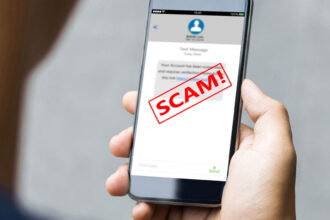In recent months, a surge of sophisticated scams impersonating the legitimate Gemini cryptocurrency exchange has left investors thousands of dollars poorer and significantly more wary of the crypto space. These elaborate schemes combine social engineering, fake applications, and the promise of easy profits to lure unsuspecting victims. Understanding how these scams operate is crucial for anyone involved in cryptocurrency investments. Let’s examine the growing phenomenon of Gemini-related scams, how to identify them, and what to do if you encounter one.
The Growing Landscape of Gemini Crypto Exchange App Scams
Cryptocurrency exchange scams have evolved dramatically from simple phishing emails to elaborate multi-stage operations involving fake applications, coordinated actors, and psychological manipulation. The legitimate Gemini exchange, founded by the Winklevoss twins in 2014, has become a target for impersonation due to its established reputation and regulatory compliance.
Scammers capitalize on the trust associated with the Gemini brand, creating sophisticated mimics of their platform and services. These fraudulent operations typically target users through unsolicited messages on platforms like WhatsApp, Telegram, and other social media channels. The scams range from fake investment groups to clone applications that look remarkably similar to the official Gemini platform.
Types of Gemini-Related Scams
1. Clone App Scams
The most prevalent form involves counterfeit applications designed to mimic the legitimate Gemini platform. These “clone apps” often have similar interfaces but subtle differences such as different coloration or slight variations in the logo. They typically feature poor translation quality, often with traces of Chinese text appearing momentarily during use.
2. WhatsApp Trading Group Scams
Scammers create fake investment groups on messaging platforms like WhatsApp, where they pose as successful traders or Gemini representatives. After joining, members receive “expert advice” and are encouraged to download third-party applications purporting to be affiliated with Gemini. These groups often feature multiple fake accounts posting about their supposed profits to create a sense of FOMO (Fear Of Missing Out).
3. Account Verification Scams
These scams involve freezing withdrawals from fake platforms after users have deposited funds. Victims are told they need to “verify” their accounts by providing sensitive identity documents or making additional deposits before they can access their funds. Each time users comply, new requirements emerge, perpetuating the cycle of fraud.
4. Analyst-Assisted Trading Scams
A more sophisticated version involves “analysts” who claim to help users trade and initially demonstrate success with small amounts. After building trust by allowing small withdrawals, they orchestrate dramatic account growth through manipulated figures on the fake platform. When users try to withdraw larger sums, they face demands for “commissions,” “verification fees,” or other invented charges.
How the Scams Operate
The mechanics of these scams follow predictable patterns while adapting to security awareness among potential victims:
- Initial Contact: Unsolicited messages invite users to join “exclusive” trading groups or download “advanced” trading apps affiliated with Gemini.
- Trust Building: Scammers create an illusion of legitimacy through professional-looking interfaces, fake customer testimonials, and small successful withdrawals in the beginning.
- Deposit Encouragement: Victims are encouraged to make initial deposits, often starting with relatively small amounts ($1,000-$5,000).
- Falsified Growth: The platform shows dramatic (but fake) growth in the user’s portfolio, creating excitement and trust.
- Withdrawal Obstacles: When users attempt to withdraw significant funds, they encounter various barriers – frozen accounts, verification requirements, or “fees” that must be paid.
- Escalating Demands: Each time a victim complies with a demand, new requirements emerge, often involving increasingly large deposits to “unlock” their growing but fictional balance.
A victim from a recent Reddit post described losing approximately $44,000 through this process: an initial investment, followed by “commissions” on fictional gains, followed by “verification fees” to access their supposed $121,000 balance. At each stage, the scammers had a plausible explanation for why additional funds were needed.
Red Flags and Warning Signs
Protecting yourself starts with recognizing the warning signs of these scams:
- Unsolicited messages about cryptocurrency trading opportunities, especially on WhatsApp or Telegram
- Applications requiring downloads outside official app stores
- Identical deposit addresses across different accounts
- Immediate and unrealistic profits on investments
- Poor translation or foreign language elements in the application
- Pressure to act quickly or invest immediately
- Claims of association with legitimate exchanges without official verification
- Requests for personal documents after deposits (rather than before)
- Withdrawal obstacles and demands for additional fees
The legitimate Gemini exchange has clearly stated their communication practices. According to Gemini’s official security information, they will:
- NEVER ask for your password or 2FA codes
- NEVER ask for remote access to your computer or phone
- NEVER ask you to transfer funds to another account or wallet address
- NEVER send text messages (communication is via email only)
- Only send emails from addresses ending with “gemini.com”
Protecting Yourself from Gemini Impersonation Frauds
Taking proactive steps can significantly reduce your risk of falling victim to these sophisticated scams:
- Always use official channels: Download cryptocurrency apps only from official app stores and verify them against the company’s official website.
- Verify communication: Legitimate Gemini emails always end with “@gemini.com” or subdomains like “@news.gemini.com” or “@em.gemini.com”.
- Use bookmarks: Bookmark the official Gemini website (https://exchange.gemini.com/signin) and always use this bookmark to access your account.
- Enable enhanced security: Activate all available security features on legitimate exchange accounts, including two-factor authentication and withdrawal address whitelisting.
- Verify before depositing: Before sending any funds, complete thorough verification processes on the legitimate platform.
- Ignore unsolicited investment advice: Be extremely skeptical of any unsolicited messages about cryptocurrency trading opportunities.
- Check for reviews: Research platforms thoroughly, including checking Trustpilot and other review sites for warnings about scam operations.
- Verify deposit addresses: Always double-check withdrawal addresses directly on the official exchange website or app.
- Be wary of too-good-to-be-true returns: Promises of extraordinary returns with minimal risk are almost always fraudulent.
What to Do If You’ve Been Scammed
If you believe you’ve fallen victim to a Gemini impersonation scam:
- Stop all communication with the scammers and do not send any additional funds.
- Report to authorities: File reports with local law enforcement and relevant financial crime agencies.
- Contact your bank: If you used bank transfers or credit cards, contact your financial institution immediately to try to stop or reverse payments.
- Document everything: Save all communications, transaction details, and screenshots as evidence.
- Report to the legitimate Gemini: Notify the real Gemini exchange at their official support email about the impersonation.
- Report to app stores: Report fraudulent applications to Google Play or Apple App Store.
- UK victims: If in the UK and eligible under Authorized Push Payment (APP) fraud protection, report to [email protected] as soon as possible. Note that protection may be available for eligible claims up to £85,000, though reimbursement is subject to specific conditions.
- Be wary of recovery scams: Be alert to “recovery experts” who claim they can retrieve your lost funds for a fee – these are typically secondary scams targeting victims.
Frequently Asked Questions
1. Is that WhatsApp text for making money through Gemini App legitimate?
No. Gemini explicitly states they do not communicate via text messages. Any WhatsApp messages claiming to represent Gemini or offering investment opportunities through Gemini are fraudulent. The legitimate Gemini exchange communicates only through official email addresses ending with “gemini.com.”
2. Is the Gemini App legitimate?
Yes, the official Gemini application is legitimate, but it should only be downloaded from official app stores (Apple App Store or Google Play) or from the links provided on Gemini’s official website (gemini.com). Any application called “Gemini Pro,” “Gemini Global,” or other variations that require downloads from unofficial sources is likely fraudulent.
3. How can I tell if I’m on the real Gemini website?
The legitimate Gemini exchange website has the URL “gemini.com” or “exchange.gemini.com.” Always check for the secure lock icon in your browser and verify the exact spelling of the domain. Scam sites often use slight variations like “geminitrust.com” or “gemini-exchange.com.”
4. Why do these scams succeed despite warnings?
These scams exploit psychological manipulation, creating a sense of trust through professional-looking interfaces and small initial successes. The social proof of seeing others (fake accounts) making money creates pressure to participate, while the gradual escalation of commitment makes it difficult for victims to recognize the fraud until significant money has been lost.
5. If my account is frozen on Gemini, does that mean I’ve been scammed?
Not necessarily. The legitimate Gemini exchange does occasionally place security holds on accounts for compliance or verification reasons. The difference is that legitimate holds will be communicated through official Gemini emails, and the resolution process will never involve sending additional funds to external addresses or providing login credentials.
Conclusion: Vigilance in the Crypto Space
The rise of sophisticated scams impersonating trusted exchanges like Gemini highlights the ongoing security challenges in the cryptocurrency ecosystem. While legitimate exchanges continue to improve their security measures, fraudsters adapt their techniques accordingly.
The most effective protection remains education and cautious verification. Understanding how these scams operate, recognizing the warning signs, and following established security practices can significantly reduce your risk of falling victim to these increasingly sophisticated schemes.
Remember that legitimate cryptocurrency exchanges like Gemini will never contact you unsolicited with investment opportunities, request sensitive account information, or ask you to transfer funds to external addresses for verification purposes. By maintaining healthy skepticism toward unsolicited opportunities and verifying all communications through official channels, investors can better protect themselves in this evolving landscape.
Regulators and law enforcement agencies are increasingly focusing on cryptocurrency fraud, but the decentralized and international nature of these scams makes recovery of lost funds extremely difficult. Prevention remains the most effective strategy against these evolving threats.





























